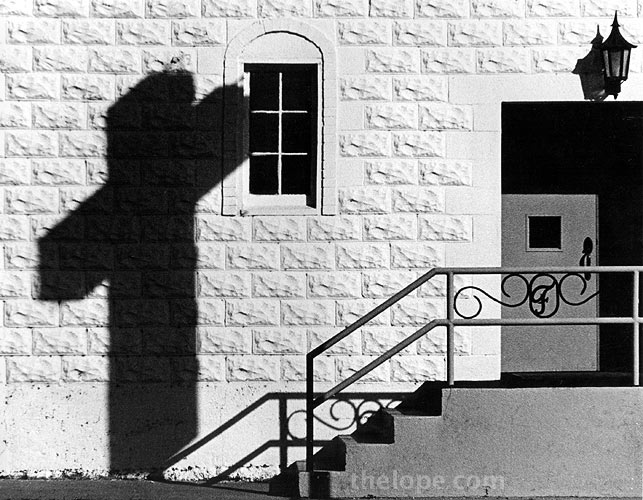 |
| Photo by Jonny Eberle. |
Arnold: "I don't know what to say to you. I really don't. I'm not trying to throw it in your face but it is what I am and it's not just a matter of who I sleep with. Ma, try to imagine the world the other way around. Imagine that every movie, book, magazine, T.V. show, newspaper, commercial, billboard told you that you should be homosexual. But you know you're not and you know that for you this is right..."
Ma: "Arnold, stop already. You're talking crazy."
Arnold: "You want to know what's crazy? That after all these years, I'm still sitting here justifying my life. That's what's crazy."
Ma: " You call this a life? This is a sickness! But this is what you've chosen for yourself."
Arnold: "Ma, look: I'm gay. I don't know why. I don't think anyone does. But that's what I am. For as far back as I can remember. Back before I knew it was different or wrong..."
- Torch Song Trilogy by Harvey Fierstein
Last month, the New York State Legislature passed the Marriage Equality Act, making New York the largest state in the country to legalize same-sex marriage. When I heard the news, I remember feeling pride — pride in the fact that we were finally taking steps toward a more loving and accepting future.
Some people are surprised to hear that I support gay marriage and go to church. Personally, I don't see why the two have to be mutually exclusive. The God I believe in is a loving God, who loves everyone, not just straight people. The God I believe in makes no exceptions and any interpretation that casts him as a father who doesn't love all of his children and would condemn some of them because of how he created them just feels wrong.
In 1st Corinthians 13:13, Paul writes to the church in Corinth, "And now faith, hope, and love abide, these three; and the greatest of these is love."In the gospels, Jesus says the same thing, telling an expert in the law, "You shall love the Lord your God with all your heart and with all your soul, and with all your mind. This is the greatest and first commandment. And the second is like it: 'You shall love your neighbor as yourself'" (Matthew 22:37-39).
Love your neighbor as yourself. That's what it all comes down to. Loving our neighbors — all of our neighbors — and God makes no distinction between people like us and people who are different. In his day, Jesus was criticized because he associated with the unclean members of Jewish society. He ate with tax collectors and went around healing lepers.
I am convinced that if Jesus was here today, you would not find him in the pews of our churches. You would find him among the lesbian, gay, bisexual, transgender, queer community. Why? Because Jesus does not side with public opinion or authority. He sides with the people society and the church condemn. Not to convert them. Not to "save" them, because there is nothing wrong with them. He goes there to show them that God loves them unconditionally, just as they are. If we want to call ourselves Christians — followers of Jesus Christ — we would do well to follow his example.
Yet, people still hate. Christians in particular often denounce homosexuality as a sin. When I hear this hateful rhetoric, I am ashamed to be connected to an organization that can be so blinded by dogma that it forgets its founding ideals. If we took a step back and saw the hurt anti-gay sentiment has on real people, we would be disgusted by ourselves.
Arnold: "Listen, Ma, you had it easy. You have thirty-five years to remember, I have five. You had your children and friends to comfort you, I had me! My friends didn't want to hear about it. They said, 'What're you gripin' about? At least you had a lover.' 'Cause everybody knows that queers don't love. How dare I? You had it easy, Ma. You lost your husband in a nice clean hospital, I lost mine out there. They killed him there on the street. Twenty-three years old laying dead on the street. Killed by a bunch of kids with baseball bats. Children. Children taught by people like you. 'Cause everybody knows that queers don't matter! Queers don't love! And those that do deserve what they get!"
I hope that one day, this won't even be an issue. I pray that my children will ask me about the gay marriage battle and ask, "Dad, what was that all about?" because they won't understand what the big deal was. Someone has to take a stand. As Christians-in-progress, I think we're called to stand with those who are told that everything they are is wrong and that they need to be "cured."
Jesus loved everyone. Why can't we?




